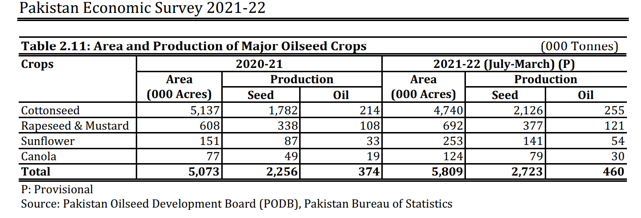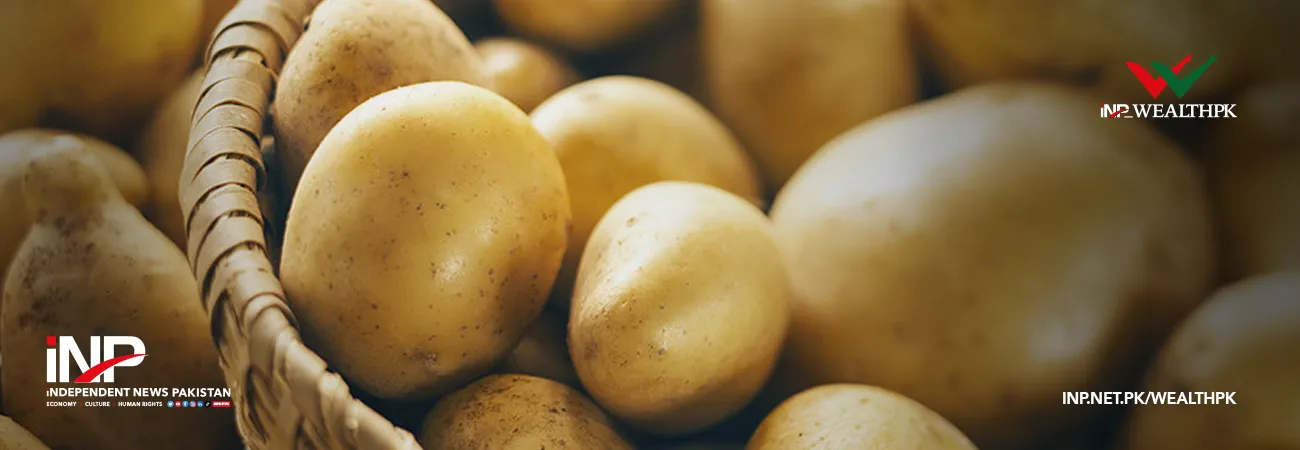INP-WealthPk
Arooj Zulfiqar
Pakistan has the potential to reap huge dividends in the oilseed sector through enhanced cooperation with China, said a senior official. “Despite ecological diversity, suitable climate, and vast fertile land, Pakistan is unfortunately among the lowest edible oil-producing countries,” said Dr Ehsan Ullah Khan, Senior Scientific Officer at National Agricultural Research Centre (NARC) while talking to WealthPK.
“Only 30% of Pakistan's domestic oil needs are satisfied by local production, with the remaining 70% coming through imports. The cost of importing edible oil has surpassed $4 billion annually to meet the pressing demand of its population,” Dr Ehsan pointed out. “Given the substantial import bill for only one commodity, Pakistan needs a significant increase in the local production of edible oil,” said the official.

“To reduce its import bill, Pakistan has started focusing on developing its own oilseed industry,” Dr Ehsan said. He said the government has introduced a number of incentives and policies to encourage farmers to grow more oilseeds, and there has also been an increase in private-sector investment in the industry. Additionally, he said, Pakistan has been exploring opportunities for international cooperation in this area, particularly with China.
“China is one of the world's largest importers of oilseeds and is also a major producer of edible oils. The country's well-developed agricultural industry has invested heavily in research and development to improve crop yields and quality. Hence, there is great potential for cooperation between China and Pakistan in the oilseed sector,” he pointed out.
The official noted that the China-Pakistan agriculture cooperation has been gaining momentum in recent years, with both countries recognising the potential benefits of collaboration in this sector. “One of the areas of focus has been the development of Pakistan's oilseed industry, which has long been considered an untapped resource with significant potential for growth,” he said. He said the two countries recently initiated a joint venture to introduce hybrid canola seeds to Pakistani farmers, which has the potential to revolutionise the country's agriculture sector.
According to WealthPK research, canola seeds developed by China have been sowed on about 80,000 hectares of land in Pakistan, which will help reduce the burden on Pakistan’s strained foreign exchange. The country consumes around 5 million tons of cooking oil a year, but farmers don't prefer oilseeds due to their low economic potential. To help the country meet its edible oil demand and support its foreign exchange reserves, Chinese company Wuhan Qingfa Hesheng and a Pakistani company Evyol Group jointly provide high-quality hybrid seeds to Pakistani farmers.
The variety takes 10 years to produce yield and is compatible with climate change. It's a good crop for farmers because a standard 2kg pack is enough to cultivate two acres, which has a yield of 1.5 tons, which is over 10% more than the other varieties currently available.
“Another benefit is that it produces fodder for cattle, which we usually import, and due to the devaluation of the currency it has become a substantial financial burden,” said the official. “If farmers cultivate canola according to the instructions of agro-scientific researchers, then they can earn higher yields with less input cost, which will increase their income and will save a significant amount of foreign exchange,” he added.
Credit: Independent News Pakistan-WealthPk













